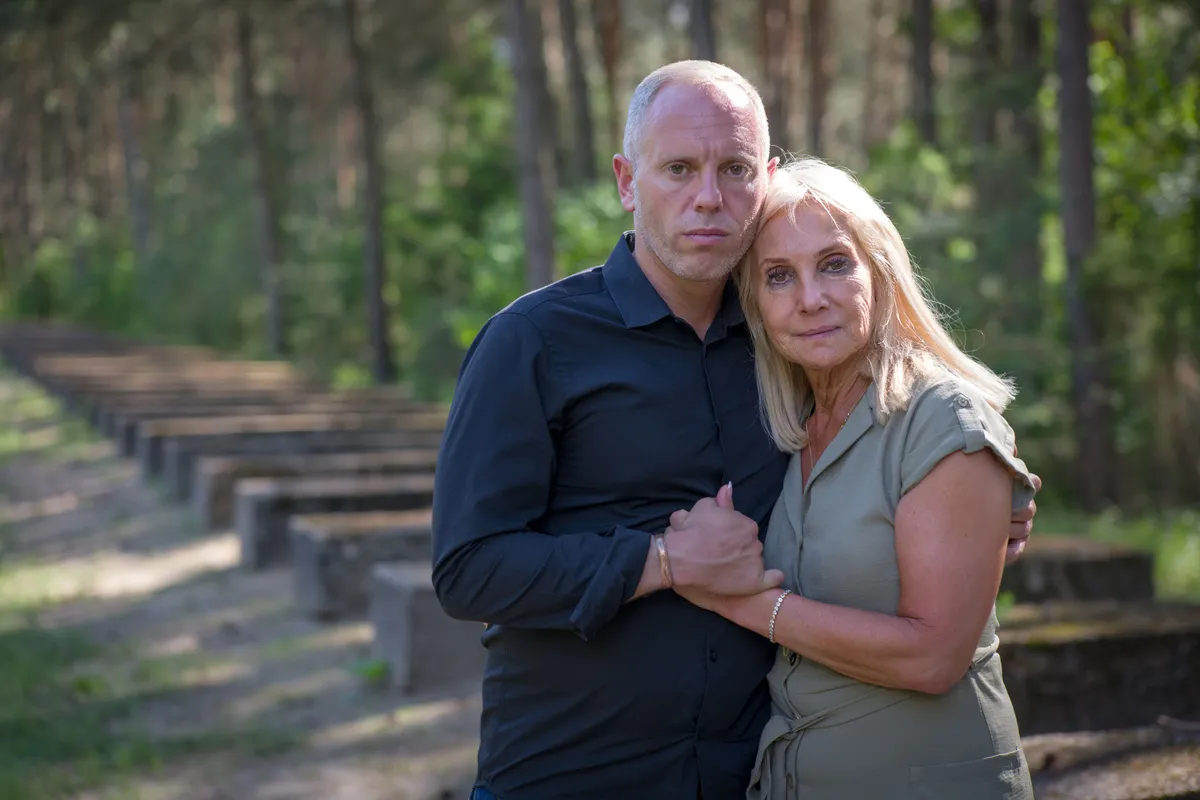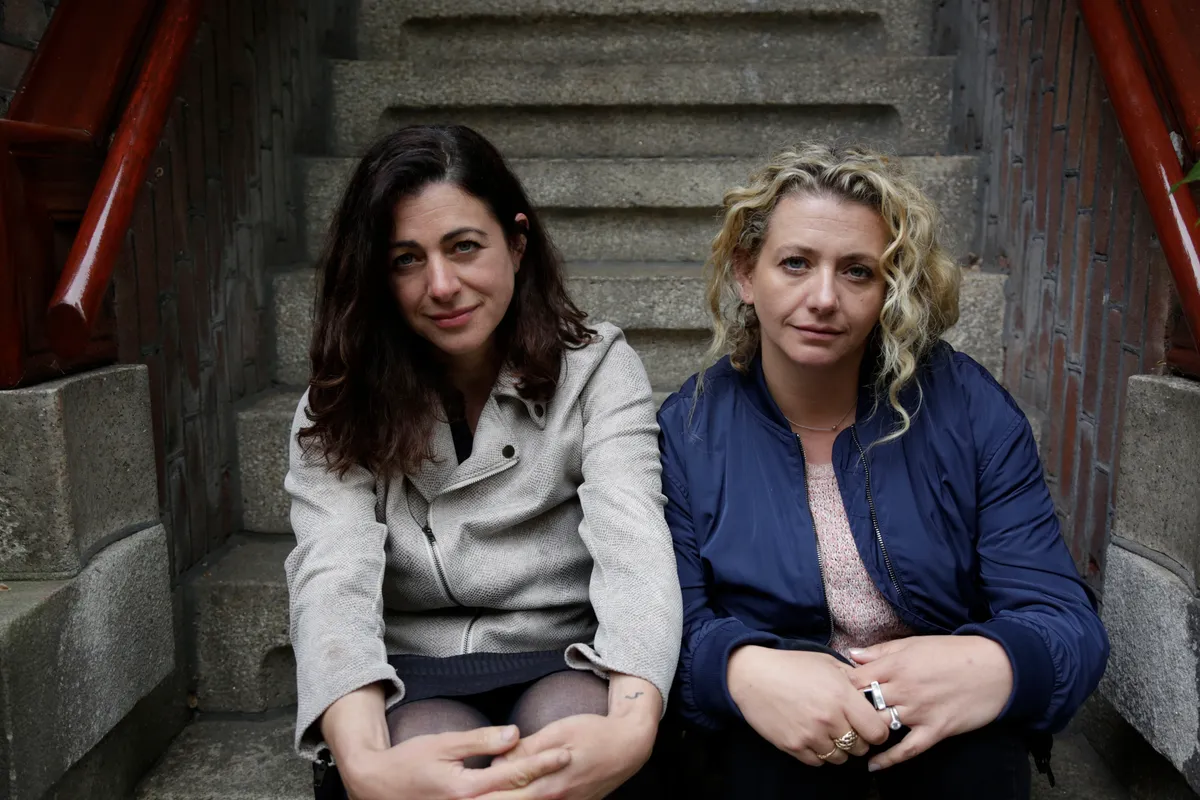In 2018, barrister and TV presenter Robert Rinder appeared on Who Do You Think You Are? Focusing on the losses suffered by Rinder’s family in the Holocaust, it was an episode that gave rise to an outpouring of emotion from viewers.
In the two-part BBC One documentary My Family, The Holocaust And Me, Rinder not only continues his research, but meets other Jewish Britons who want to know more about what happened to their relatives, and to explore the long-term effects of living through trauma – not just on survivors, but on their children and grandchildren. Here, Robert Rinder reflects on what he’s learnt from tracing his family history.
How did My Family, The Holocaust And Me come about?
“It grew out of Who Do You Think You Are? and the extraordinary response after the programme. While I was probably the least famous person to appear in the series, it attracted a wave of viewers. One good news story about this is there wasn't a peep of antisemitism on social media, there was just this outpouring of conversation, with curiosity and wanting to know more.”
What was it like visiting the site of the Treblinka concentration camp, where many of your relatives died?
“[Doing WDYTYA? breathed] life into this family who had been murdered in Treblinka, but there was a sense of a lack of completion. There's no such thing I think in this kind of historical context as closure, but it seemed important to be able to go to Treblinka, and to say Kaddish, the Jewish memorial prayer. That somehow mattered, to give the dead some element of honour, of burial, of memory, of being able to do something for them, to restore their humanity. That was one of the most profound moments.”
You also visit a mass grave in Belarus.
“[Director David Vincent] said, ‘We’re going to a Soviet memorial.’ And so, perhaps naturally, I assumed it would be a standard Soviet memorial, which would be a fairly bland stone monolith on it with no mention of what had taken place there. But as you see on the programme, what I was unexpectedly confronted by and with was quite literally the same mass grave that had been there 75 years before, topographically entirely as it was, a big mound of earth.” You can see a clip of Robert's visit to the mass grave on the programme website.

What do you think was the psychological impact on the children of Holocaust survivors?
“I remember my mum describing growing up around – and she describes this better than I can – these people that weren't there anymore. There was a sense that things could be taken away. There are so many people, second generation especially, who knew that their parents had gone through the Holocaust, knew that they grew up around this dark nefarious shadow trauma. That inevitably informs their parenting and of course coloured their childhood, but they knew nothing because it's too big and too difficult to talk about.
There are so many people who grew up around this dark nefarious shadow trauma
“So we wanted to find stories where the second generation could fill in the gaps, to have the same gift of my experience in Who Do You Think You Are?, where I knew, if you like, a thin historical outline, but what I didn't have was any of the colouring in, any of the soul and spirit and the narrative.
“[One of the stories we follow is] the story of Louisa and Natalie Clein. I've known them for a really long time. Natalie won Young Musician of the Year [in 1994] and [Emmerdale star] Louisa is a successful actress, and I knew their mum was hidden during the war, but she never spoke about it. My spinal column doesn't touch my brain in the way other people's do and, while I always try to be as emotionally mindful as possible, sometimes I can have all of the social grace of a bulldozer – and actually, very often people are appreciative. I do it with a thin degree of charm! I'm curious and because, I suspect, there's no emotional risk for me, I ask the difficult questions. And so when I came into their family, I started asking these questions, and what you realised was that Louise or Natalie had kind of danced around those questions for obvious reasons – not wanting to hurt, not wanting to reopen incurably painful wounds.”

Is it important that so much of the series was filmed in western Europe?
“Many of the stories take place in western Europe – in Germany, in Holland and in France. And that was quite conscious. You look, for example, at 1930s photographs of Amsterdam or Berlin, you just see how modern it is. This ruthlessness emerged, not in some cultural or political backwater but, at the time, the most evolved democracy in the world. The country of Schiller and Beethoven descended into depravity in the blink of an eye.
“All you needed was a treaty that people felt aggrieved by [the Treaty of Versailles], the right socioeconomic catastrophe, and the right person to point at the right people. And when you start thinking about that against the backdrop of modernity in all of these Western, liberal European countries, it’s a red flag to complacency. I was very pleased that so many story details are in Western Europe, to remind ourselves always to be vigilant."
This ruthlessness emerged, not in some cultural or political backwater but, at the time, the most evolved democracy in the world.
Is there a sense this kind of research can be a way of passing on not just information but, and this seems an awkward way of putting it, improving mental health?
“It's a good way of putting it. That is an enormously important question and the answer is yes. What it does is enable a conversation. And it's that conversation that allows some people to say, 'Aha, now I understand why certain things affect me. Now I understand why my parents acted in a certain way.' You gift yourself a memory that your parent was a human being too, and a child or a grandparent who went through precisely what they went through. It gives you perhaps a level of understanding, which I think imbues you with the capacity to think about yourself and to forgive them – and to restore their humanity as well. I'm so glad you asked that question because, in many respects, perhaps that's what this programme is most about."
My Family, The Holocaust and Me is showing on BBC One at 9pm on Monday 9 and 16 November and will be available on BBC iPlayer